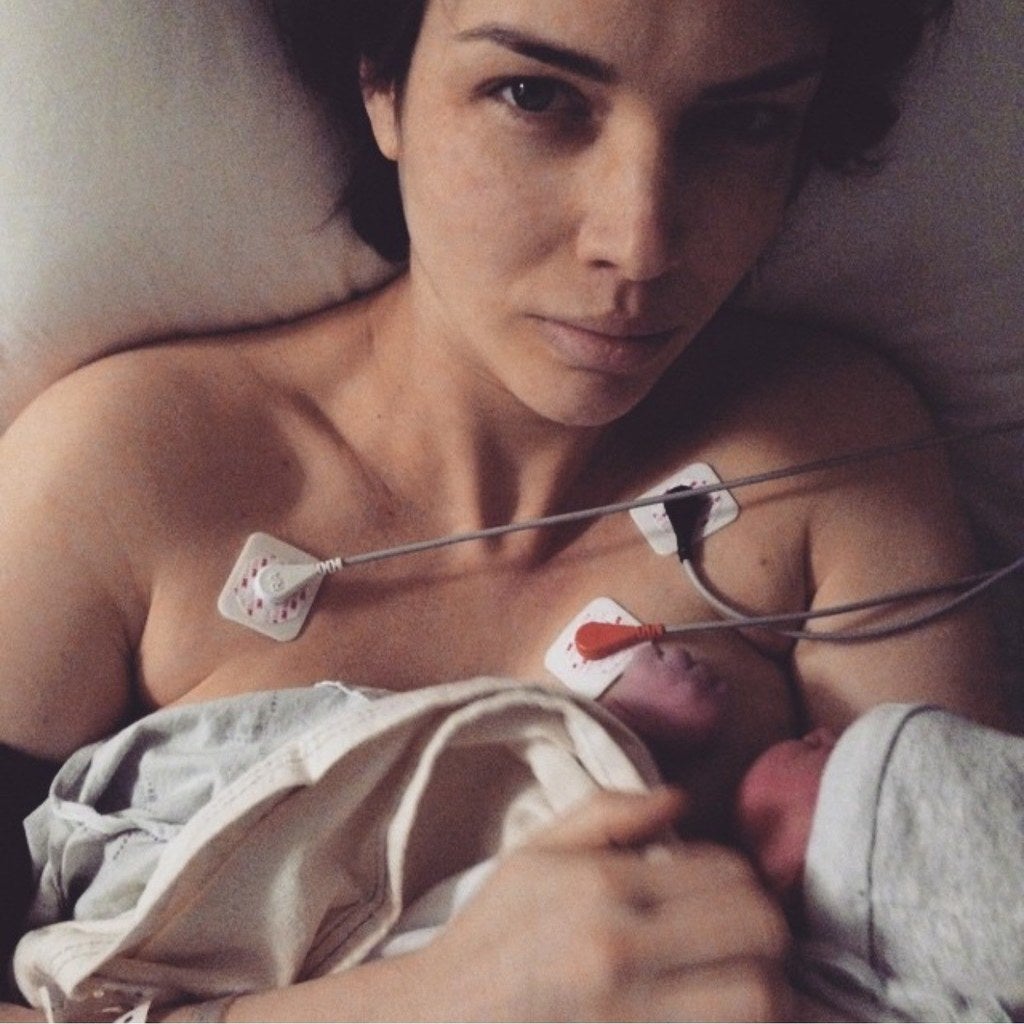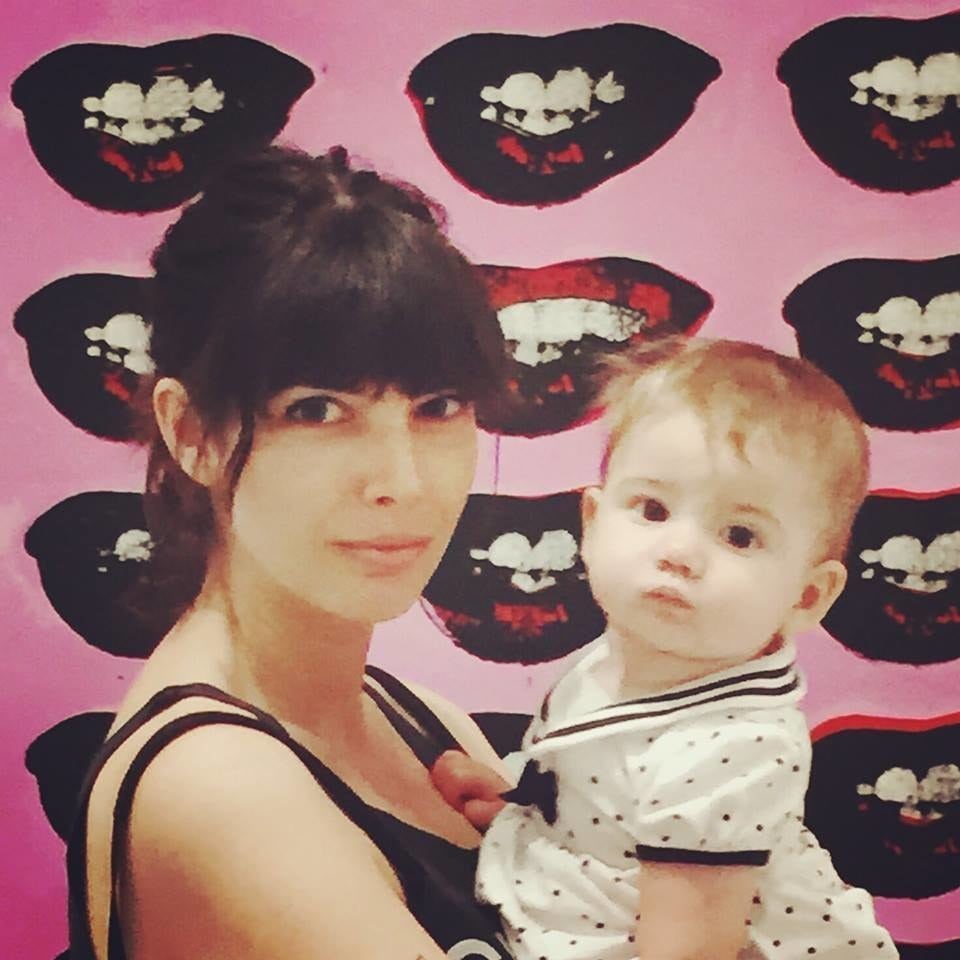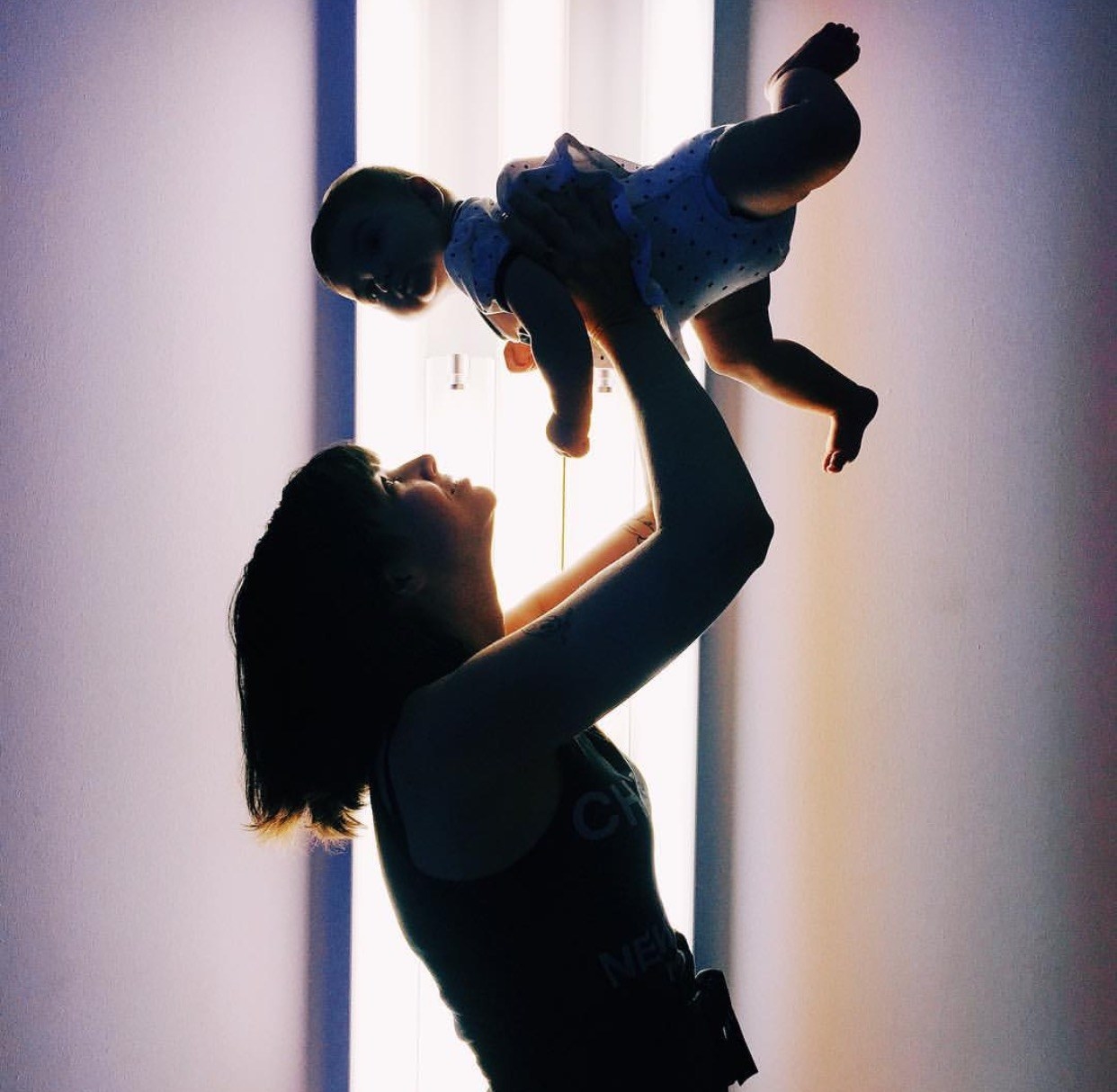
The second that doctor sliced me open and grabbed her, pulled her out and held her up to the light, I felt a bone-crushing, spooky love that I’d never felt before. My arms were splayed on either side of my body and I couldn’t move them, but they held her cheek up to mine and I felt her. I sobbed hysterically and so did she. That’s what it felt like to meet my daughter.
I am a good mother. Today, she is 15 months old, so being good means that I read to her, attempt to feed her vegetables, build tall towers of blocks for her to knock down, and love her with a fierceness that she never, ever questions. It also means that I never take a drink.
Drinking made me feel like I fit into my own skin. I was born with a too-big, too-clunky, too-awkward spirit, an amorphous thing that a god I don’t believe in jammed into a disproportionate, human-shaped meat. Two arms, two legs; all the parts were there, but it felt all wrong.
Taking a drink was like easing into myself. The bitter taste, the slow burn in the throat, the warming in the stomach, and then the release of discomfort, passing in a slow howl, like puncturing a tire. I drank because it made the world make sense, and I made sense in it.

As a young teenager, I learned that drinking instilled in me the confidence I needed to talk to boys. Some of those boys took advantage of me in sickening, disturbing ways. I learned that I couldn’t control what happened to my body when I drank. The only cure for the bad things that happened was to drink more to help me forget.
There were thousands of mornings that I woke up and promised myself that it wouldn’t happen again. Each of those mornings was exactly the same: My eyes flash open; I realize I’m still alive; I check to see where I am; I try to remember how I got there; my head roars like a thunderclap; I tell myself this is the last time. As the hangover dissolves into day, so does my resolve. By six o’clock there’s a martini in my hand, all gin. As I take the first sip, all of the crashing in me starts to calm, nothing but little waves lapping at the shore.
While the first martini squeezes my brain back into my body, the second makes me giddy with excitement. Not only has last night’s replay loop vanished, but now I’m noticing how smart I sound in conversation, how funny my jokes are, how the puffiness and ruddiness of my face add a youthful quality.
Two drinks in and it’s time for dinner; wait any longer and I won’t eat at all. Dinner comes with wine, usually white, at least half a bottle. I feel good, socially apt, sophisticated. I talk about what region the wine is from, where the vegetables were sourced.
My drinking always had consequences.
After dinner, there’s grappa, Irish coffee, an expensive liqueur. I’m teetering on the edge of my chair, saying less now than before, spinning but not badly. I drink coffee to revive myself, because I need to keep drinking. There is an inextinguishable desire woven into my roots that tells me I need to keep going. I quickly think about how much alcohol I have at home: a six-pack? Wine? How many bottles are left? One six-pack for two people is not enough, because whoever I’m with might drink three. I try to think of a reason to stop at the corner bodega, so I can casually recommend picking up more beer “just to have.”
At home, I crack open the first beer. It’s early, maybe ten. I turn on the television and queue up whatever show I’m currently on. The first beer is ice cold and deeply refreshing. When the first episode ends in a cliffhanger, I push for another one, and then another. In this way, I can drink four or five more beers before heading to bed.
My drinking always had consequences. I drove drunk into a telephone pole and badly hurt my friends. I lost myself in the bedrooms of terrible men. I stopped trying to get anywhere with my life, because as long as I could afford to drink, I was OK. They say a functional alcoholic has a job, but no soul. I always had a job.

I used to wonder if I’d ever be able to have children, because I couldn’t imagine going nine months without a drink. Would I also have to stop drinking if I were just trying to get pregnant? Would that mean a whole year without drinking? Drinking “just one or two” was never an option for me; one only guaranteed that I would not stop until total obliteration. I drank so I wouldn’t have to feel my life.
One morning, a few years before my daughter was born, I woke up. It was a morning just like all the other ones. I took a minute to figure out where I was (on my couch), how I got there (no idea), and who I was with (my friend Sarah). I noticed the front door to our Flatbush apartment was wide open, another detail I couldn’t explain. Sarah left, and I dragged myself to the bedroom, where my future daughter’s father lay sleeping. I looked at him and said, “I need help.”
That’s what grace is.
By the grace of a higher power I call “whatever,” I made it through that day and night without drinking. I made it through the next day, too. As I sit here writing this, I’ve made it through 1,697 days.
I had to earn those days, one at a time. I had to learn how to sit in my own skin, in all that discomfort, with the shameful memories that snuck up on me and pounced. I had to learn how to go to dinner without drinking, how to watch TV without drinking, how to be sad without drinking, how to talk to and relate to other people without drinking. I felt like a teenager again, noticing strange feelings and thoughts suddenly unobscured by the thick fog of a daily alcoholic haze.


In early sobriety, I learned how to be a person. Armed with AA’s Big Book, I’d sit in coffee shops with other women and weepily tell them about the things I’d done while drunk. These women: poets, professors, ex-junkies, best-selling authors, former crack addicts, line cooks; they’d all done the same things. They showed me what it looked like to extend a hand, a whole limb, to another person who desperately needed some kindness. They taught me how to untangle from my mess of a past, forgive myself, and look forward. They demonstrated how I could be worthy of my own love.
After I became pregnant, I’d sit in my alcoholic meetings and cry. I just wanted to be a good mother. I just wanted to not drink again.
I can only imagine what my days would be like now if I weren’t sober. I wouldn’t get up at 6:30 every morning and slice a banana into perfect half-inch rounds, cut off the bruises, and put them in the yellow plastic bowl. I wouldn’t read her Ten Little Ladybugs until her dad woke up — or if I did, it would be despite a splitting headache, still half drunk from the night before.
I wouldn’t drive her to daycare myself, because I wouldn’t drive. I wouldn’t spend my days writing and illustrating my very first book, because I would know that I wasn’t worthy of a dream like that. I wouldn’t make my daughter spaghetti for dinner — or maybe I would, but I wouldn’t sit with her in her highchair without a glass of wine, using all the patience I could muster to teach her how to use a fork and stop flinging cheese at the dog.
I’m not going to drink today, and so today I will be capable of loving my daughter.
Now, life is good. Since I’m no longer bound to my obsession with procuring the next drink, my mind is free to think about other things. I’m able to think about other people, and the thousands of microscopic ways I can care for them and love them every day. I can be patient. I can take my daughter to the park and notice all the buttercups sprouting in the unmowed grass.
When I drink, nothing is more important than figuring out how to keep drinking. I don’t care where I am, who I’m with, how they’re treating me, or how much danger I’m in. I don’t care about anybody or anything besides drinking. I don’t love anybody more than booze.
I’m not going to drink today, and so today I will be capable of loving my daughter. I hope, in this way, I can stack up the days every day of her life. I hope she never has to feel the sting of my absence, because I’ve chosen to disappear. I’m where I want to be now, which is here.

A version of this essay was originally published on Erin Williams’ blog, goosecamp, where you can read more about her experiences as a mother.
